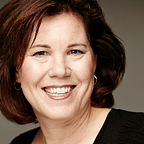What Are You Measuring in Your Writing Life?
Last week, some of my staff and some Author Accelerator book coaches and I attended a town hall meeting held by entrepreneur Rachel Rodgers. I have been a Rachel Rodgers fan since I heard her speak at a ConvertKit conference. She held this event — which about 3,000 entrepreneurs attended live — to talk about how to leverage our entrepreneurial power to make our small corners of the world anti-racist. We signed a Small Business Anti-Racist pledge. You can read it HERE.
One core idea of the pledge is to measure the results you want to achieve. A business normally measures things like sales and revenue. Rodgers asserts that we should also be measuring exactly how we are working to be anti-racist. If we are truly committed to equity and inclusion, we need to hold ourselves accountable, which is one thing measuring helps us do. Toward this end, Author Accelerator is working on an ongoing scholarship to bring more Black people into our coaching courses. We want it to be robust, effective, and sustainable, so we’re taking our time to get it right.
At the town hall, we talked about measuring how many Black authors we are reading (or recommending, in my case, as the developer of courses for book coaches. Turns out I read a lot of white male business writers.). It was eye-opening to think about my own reading habits. I saw that there is an initiative this week to “blackout” the bestseller list (#blackoutbestsellerlist) by buying at least two books by Black authors. The bestseller list is a particular kind of measuring that obviously matters enormously to authors. I encourage you to join in this effort.
Measuring Your Writing Goals
All this talk of measuring made me think about what writers measure. So often, writers measure word goals — a number of words written in a day or a week or a writing session.
Or, in a different twist on the same thing, we measure the time spent writing — 15 minutes, an hour, three hours.
In other words, we measure output.
But what if we were to measure how closely the words we put down match the vision in our minds?
What if we were to measure the way our writing makes an impact on our readers?
Then, we would be paying attention to the efficacy and power of our words.
We would be paying attention to the weaknesses in our work and how we can improve it.
It strikes me that this would lead to better outcomes for the other thing writers typically measure — how the book does in the marketplace.
Entering the marketplace is not just about landing an agent and getting a book deal, or racking up book sales. It, too, is about making an impact. The agent and the book deal and the book sales are tools for helping a writer reach readers and connect with them.
And how we matter to our readers depends in large part by being clear about our intention (why are you writing? Who are you writing for? What’s your point??) and devoting ourselves to our craft (what hooks a reader and keeps them turning pages? How do I get emotion on the page? How do I get out of my own head to see my work clearly?).
It all goes back to the same thing: measuring impact.
The next time you sit down to write, think about what you want your scene or chapter or chunk of writing to do. Think about why you are writing it, what it is contributing to the whole. Try not for words or time but for impact.
